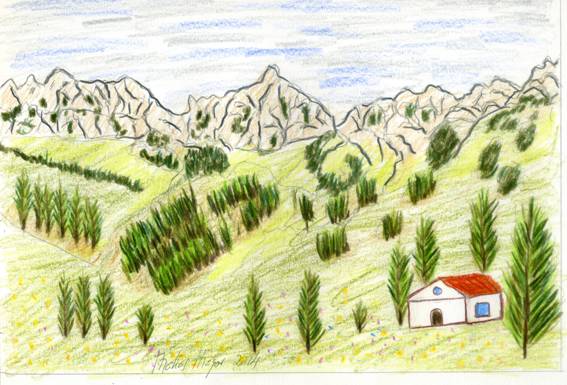This entry was posted on jueves, abril 9th, 2015 at 12:33 and is filed under Divulgación, Mis Dibujos. You can follow any responses to this entry through the RSS 2.0 feed. You can leave a response, or trackback from your own site.

Refugiados climáticos.¿ La futura realidad social?.,Refugees climate. the future social reality?
Refugiados climáticos.¿ La futura realidad social?
………..
………..
Refugees climate. the future social reality?
……
….
….
RT
…
.
..
Refugiados climáticos, ¿la futura realidad social?
……..
….
Aunque por el momento el estatus de ‘refugiado por razones climáticas’ no existe, en el futuro esta situación podría cambiar, ya que algunos isleños están dispuestos a ‘pelear’ por este derecho hasta en los tribunales internacionales.
……..
….
Así, en octubre de 2013 el kiribatiano Ioane Teitiota pidió asilo climático en Nueva Zelanda. Trató de convencer a las autoridades neozelandesas de que su país se muere, se ahoga, y temía por el futuro de sus hijos.
……
……
«Me preocupa nuestro futuro, nuestros hijos», sostiene Teitiota. La gente en Kiribati «está preocupada por su vida», agrega.
…..
…….
Si se hubiera aceptado su petición, Teitiota se habría convertido en el primer refugiado climático del mundo. Pero el Tribunal de Inmigración de Nueva Zelanda desestimó su solicitud con la siguiente explicación: «En realidad, toda la población de Kiribati se ve obligada a hacer frente a la degradación del medio ambiente».
……
……..
Después, la reclamación de Teitiota fue rechazada por el Tribunal Supremo y el Tribunal de Apelación. Sin embargo, el hombre dice que no se va a quedar de brazos cruzados, y su abogado está preparado para llevar su caso al Comité de Derechos Humanos de la ONU, si los demás medios fallan.
……
……….
Durante los últimos 20 años, Nueva Zelanda y Australia han rechazado al menos 17 solicitudes de ciudadanos de las islas del Pacífico que pedían la condición de refugiados por el cambio climático.
…..
…..
Si bien ninguna petición ha tenido éxito de momento, el tema del cambio climático ocupó un lugar destacado en un proceso del año pasado en el que una familia de Tuvalu logró apelar su deportación de Nueva Zelanda por razones humanitarias.
…..
…….. A pesar de que la motivacón principal de la decisión fue que la mayor parte de los parientes de la unidad familiar vivían en Nueva Zelanda, el impacto del cambio climático en la capacidad de la familia para llevar una «vida segura y satisfactoria» en Tuvalu también ocupó un lugar destacado, sobre todo en lo relacionado con los dos niños pequeños del nucleo familiar.
….
…….. Fue posiblemente el primer proceso en el que el argumento del cambio climático pesó a favor del demandante de asilo.
……..
…….
Su’a William Sio, portavoz del Partido Laborista de Nueva Zelanda sobre Asuntos del Pacífico, se mudó desde Samoa cuando era niño. Dice que los electores plantean con frecuencia el tema del desplazamiento por el cambio climático. «Esto es real, está sucediendo ahora», manifiesta Sio.
……
….
Climate refugees, the future social reality?
…………
Although for the moment the status of ‘refuge for climatic reasons’ does not exist, in the future this situation could change, since some Islanders are willing to ‘fight’ for this right even in international tribunals.
.
Thus, in October 2013 Ioane Teitiota kiribatiano requested asylum climate in New Zealand. He tried to persuade the New Zealand authorities that their country die, drown, and fears for the future of their children.
…………….
«I am concerned about our future, our children», says Teitiota. People in Kiribati «is concerned for his life», adds.
…………….
If you had accepted your request, Teitiota would have become the first climate refugees in the world. But the New Zealand Immigration Court dismissed their request with the following explanation: «in fact, the entire population of Kiribati was forced to deal with the degradation of the environment».
……………..
Later, the Teitiota claim was rejected by the Supreme Court and the Court of appeal. However, the man says that he won’t stand idle, and his lawyer is prepared to take its case to the UN Human Rights Committee, if other means fail.
…………………….
During the past 20 years, New Zealand and Australia have rejected at least 17 requests for the Pacific Islands citizens demanding refugee status by climate change.
Although no request has succeeded for the time being, the issue of climate change occupied a prominent place in a process of last year in which a family of Tuvalu was able to appeal deportation from New Zealand on humanitarian grounds.
………………
While the main motivacón of the decision was that most of the relatives of the family were living in New Zealand, the impact of climate change in the ability of the family to live a «life safe and satisfactory» in Tuvalu also occupied a prominent place, especially with regard to the two children of the family.
……………..
It was possibly the first process in which the climate change argument weighed in favour of the applicant for asylum.
…………………
Its ‘ William Sio, spokesman of the Labor Party of New Zealand on Pacific Affairs, was moved from Samoa when he was a child. He says that voters often raise the issue of displacement by climate change. «This is real, it is happening now,» says Sio.
